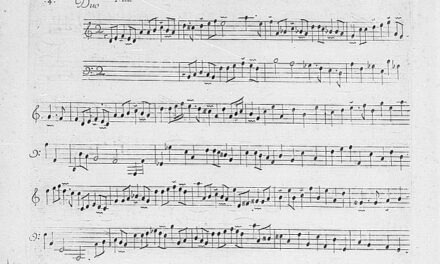Guest artist Misha Dichter has had a busy weekend: two performances of the Gershwin Piano Concerto, first in Greensboro on Saturday and then again in Boone on Sunday. Then on Monday, for the EMF, in UNCG’s recital hall, he played in every piece on the program. Dichter was joined by his wife, Cipa Dichter to play music for piano four hands, both original and arranged, and for one and two pianos.
Franz Schubert (1797-1828) wrote his Fantasie in F minor, D.940, a few months before his death. It is a multi-sectional work, akin to a four-movement sonata, but played without pause between the sections.
Ms. Dichter played the upper part and presented the gentle opening memorable melody with exquisite rhythmic and dynamic nuance. More stern material follows and Mr. Dichter came to the fore with sturdy chords. The nimble fingers of both performers were put on display in a sprightly section. A giant fugue takes place before the opening melody returns. It was lovely to hear this work, one of the most beloved chamber music pieces, so solidly played.
Mr. Dichter moved to the second nine-foot piano on the other side of the stage and stated, “And as Monty Python said, ‘Now, for something completely different.'” And the two then launched into El Salón México by Aaron Copland (1900-90). The piece was written as an orchestral work, inspired by the composer’s memories of the nightlife in a Mexican dancehall of the same name. Leonard Bernstein (1918-90) arranged the work for piano duo. (It’s the big Bernstein anniversary year, of course.)
The ten-minute, raucous work is chocked full of south-of-the-border folk tunes and jaunty rhythms. The duo seemed to delight in the infectious syncopations and playing what could accurately be described as “karate chops” in the bass register. It seemed obvious the two enjoyed playing with about as much volume as two pianos can make.
Maurice Ravel (1875-1937) wrote La Valse (1920) on a commission from Russian impresario Sergei Diaghilev (1872-1929), the same person who commissioned the ballet Daphnis et Chloé. When Ravel and a friend performed the two-piano work for Diaghilev, the Russian did not find the work suitable for a ballet. That didn’t stop future artists from choreographing the work, however.
Ravel gave the following description: “Through whirling clouds, waltzing couples may be faintly distinguished. The clouds gradually scatter: one sees… an immense hall peopled with a whirling crowd. The scene is gradually illuminated. The light of the chandeliers bursts forth…. Set in an imperial court, about 1855.”
While the inspiration may have been Johann Strauss, Jr.’s waltzes, this is a work firmly planted in the 20th century. Tremolos from the piano create a hazy atmosphere out of which snatches of tunes can be discerned. Occasionally frenetic waltzes emerge until the piece comes to the brilliant conclusion. Bravo to the Dichters for creating such an atmospheric performance!
The second half of the program was given over to one work: Piano Quintet No. 2 in A Major, Op. 81 (1887), by Antonín Dvořák (1841-1904). The work is one of the great masterpieces of the form. Contained within the four movements are two that are distinctly Slavic: the second movement Dumka (based on folk ballads and laments) and the third movement Furiant (a wild Bohemian dance). Furthermore, many of the tunes in the other movements are folk-tinged as well.
The composer generously distributed the wonderful melodic material among all five instruments (maybe with the exception of the 2nd violin). Julian Schwarz, who also provided a solid bass line throughout, for example, richly played the opening tune. Violist Ben Geller stepped into the spotlight on several occasions, offering a warm tone. First violinist Jeffrey Multer led the group with his usual energy and fine musicality. Second violinist Shawn Weil ably and solidly supported the group effort.
Mr. Dichter’s accompaniments provided the glue that held everything together, although he was occasionally too loud. When the piano was given the lead, he breathed life and fire into his playing.
The Eastern Music Festival continues through July 28. For complete details, see our calendar.











